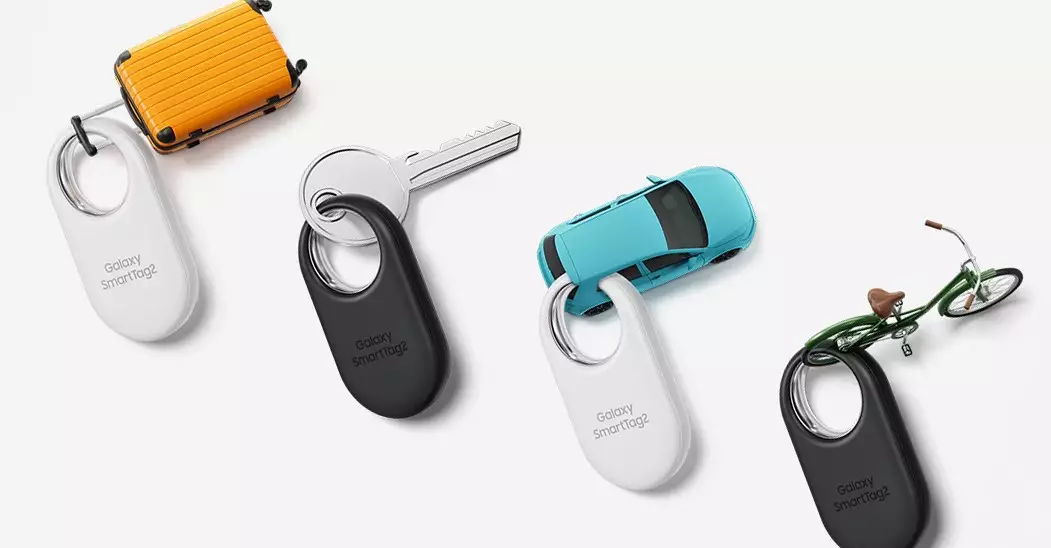In the ever-evolving landscape of smart technology, the interconnectivity of devices often determines user satisfaction and overall experience. With the advent of Samsung’s SmartThings, users have found a versatile platform to manage their smart home devices efficiently. However, the limitations of device compatibility can hinder optimal usage. This is where innovative solutions like uTag, an open-source application, come into play. By examining its features and the implications of its introduction, we can better appreciate the strides being made in enhancing user experience.
Samsung’s SmartThings platform serves as a hub for a myriad of smart devices, offering seamless control through the SmartThings app. Among its many features, the SmartTag tracker offers a specific functionality to locate personal belongings with the help of the Galaxy Find network. However, the catch is that this functionality is primarily restricted to Samsung Galaxy devices, excluding a significant number of Android users. The reliance on Samsung’s proprietary One UI for accessing various tracking features raises questions about inclusivity and access in an increasingly interconnected world.
Enter uTag, the brainchild of developer Kieron Quinn. This open-source application seeks to dismantle the barriers set by Samsung’s ecosystem, allowing users with Android 11 or later to leverage SmartTag functionalities. Not only does uTag enable compatibility with non-Galaxy devices, but it also enhances the tracking experience by supporting precise location tracking via ultra wideband (UWB) technology. This feature aligns well with current standards seen in Apple’s tracking ecosystem, providing a competitive edge in the realm of smart tagging.
Additionally, uTag goes beyond mere duplication of Samsung’s functionality. With its automatic scanning feature, users receive real-time notifications about unknown Tags in their vicinity. This contrasts sharply with the SmartThings app, which requires manual initiation for such scans. By offering proactive solutions, uTag appeals to a broader audience looking to maximize their device’s potential.
Given the contemporary concerns surrounding privacy and data security, the decision to keep uTag open-source is commendable. Users can scrutinize the code and understand what data is being accessed when signing in through their Samsung accounts. This transparency fosters trust and allows users to feel secure knowing that they can review the app’s operations. Additionally, by allowing users to authenticate their Samsung accounts, uTag smoothly integrates into Samsung’s extensive ecosystem without compromising individual security—an approach that resonates particularly well in today’s tech landscape.
Despite its numerous advantages, uTag is not without challenges. Users may encounter difficulties during the installation process since it requires downloading a modded version of SmartThings. This could deter less tech-savvy users or those uncomfortable with sideloading APKs outside of official app stores. Furthermore, as an open-source project, long-term support and updates are reliant on community involvement, which can sometimes lead to inconsistencies in performance or available features.
Looking to the future, the introduction of uTag signifies a substantial push towards fostering an open ecosystem in smart technology. Other developers may follow suit, creating more inclusive software solutions that prioritize user choice and compatibility across various device brands. As digital interconnectivity continues to expand, the demand for applications like uTag will likely grow, making user-friendly features paramount in attracting and maintaining a loyal user base.
UTag represents a pivotal shift in how users can interact with Samsung SmartTags, providing a bridge for non-Galaxy users to tap into the powerful features offered by SmartThings. Its launch not only enhances device interoperability but also sets a precedent for app development focused on openness and user empowerment. As smart technology maintains its upward trajectory, solutions like uTag will undoubtedly play a vital role in shaping an inclusive, seamless user experience. The journey ahead looks promising as developers continue to innovate and address the diverse needs of tech-savvy consumers.

